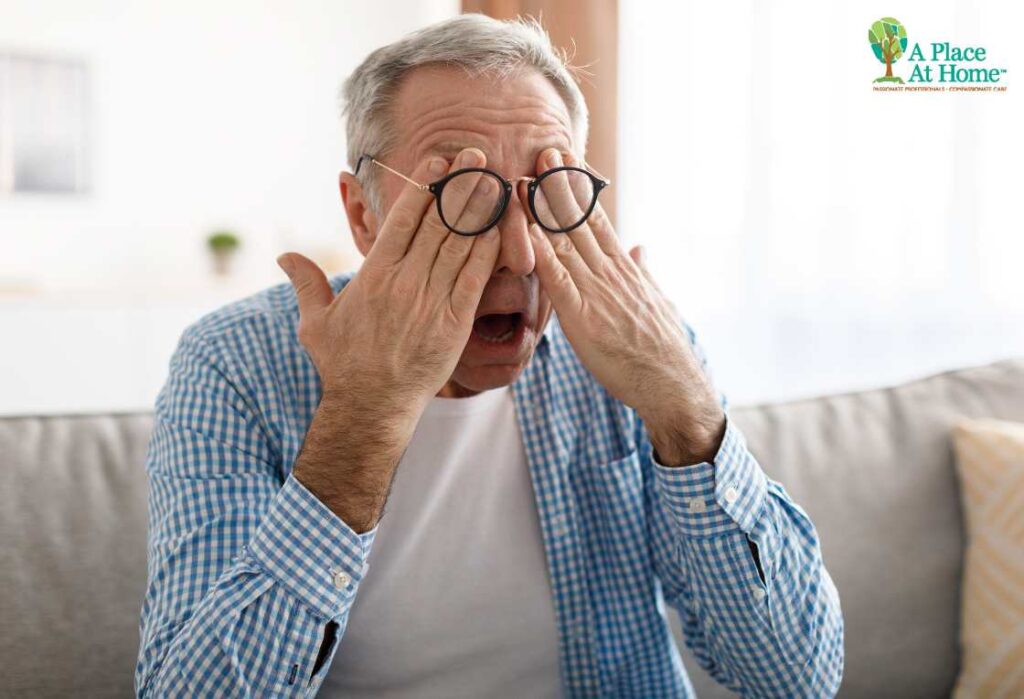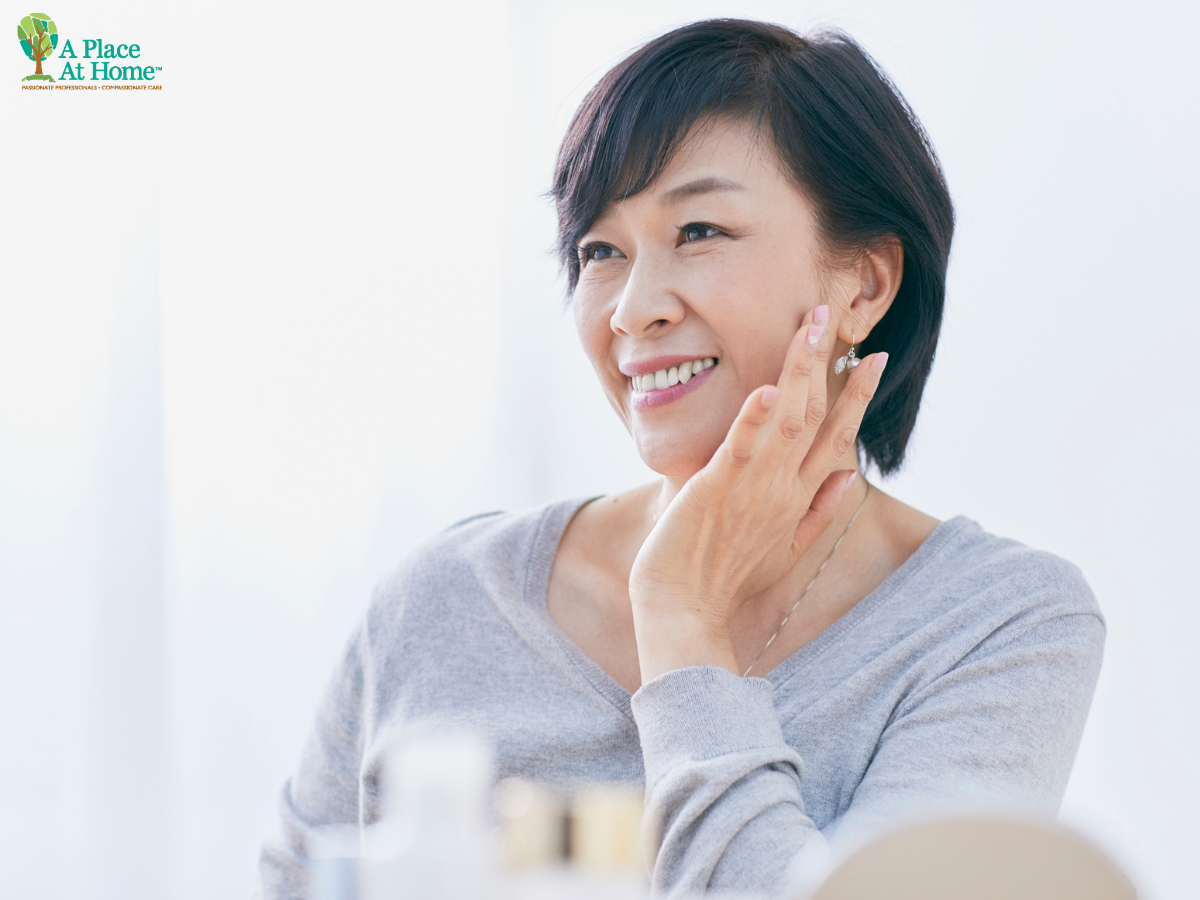Watery eyes are a common complaint among older adults. While sometimes it’s just a minor nuisance, constant tearing—known medically as epiphora—can interfere with reading, driving, or enjoying daily activities. In some cases, it may even signal an underlying condition that requires medical attention.
Understanding why watery eyes happen, when to be concerned, and how they can be treated helps families and senior caregivers support their loved ones with confidence.
Understanding the Tear System and Why It Changes with Age
Tears are more than just water. They form a protective, nourishing film that keeps the eyes healthy and comfortable. This film is made up of three key layers:
-
The oily layer – Produced by tiny meibomian glands in the eyelids, this layer prevents tears from evaporating too quickly.
-
The watery layer – Created by the lacrimal gland, it provides essential moisture and oxygen to the eye’s surface.
-
The mucin layer – This innermost layer helps tears spread evenly across the eye, ensuring clear vision.
When all three layers work together, the eyes stay balanced, hydrated, and free of irritation. But as the body ages, natural changes can disrupt this delicate system. The watery layer may decrease in volume, or the oily layer may not function as well, causing tears to evaporate faster.
Eyelid position also plays a role. Inward turning lids (entropion) or outward turning lids (ectropion) can interfere with how tears flow and drain. On top of that, the drainage system itself—including the puncta, canaliculi, lacrimal sac, and tear duct—can become narrowed or blocked over time.
When these changes occur, the eye surface may become irritated. In response, the body often produces more reflex tears, creating the paradox of watery eyes caused by underlying dryness or poor tear balance.
Common Causes of Watery Eyes in Seniors
1. Dry Eye Syndrome
It may sound surprising, but one of the leading causes of watery eyes in seniors is actually dryness. As people age, their tear glands often produce fewer tears—or tears of poorer quality. This irritation prompts the eyes to overcompensate by producing “reflex tears,” which spill over.
2. Blocked Tear Ducts
The small drainage channels that carry tears from the eyes to the nose can narrow or become blocked with age. When this happens, tears build up and overflow, often leaving the eyes looking constantly watery.
3. Eyelid Changes
Age can affect eyelid positioning:
-
Entropion – when the eyelid turns inward, lashes rub against the eye.
-
Ectropion – when the eyelid droops outward, preventing proper drainage.
Both conditions can cause continuous tearing and irritation if untreated.
4. Allergies and Environmental Irritants
Dust, pollen, smoke, strong fragrances, and even wind can cause watery eyes. Seniors may also be more sensitive to dry indoor air, especially during winter.
5. Eye Surface Conditions
-
Blepharitis – eyelid inflammation from blocked oil glands.
-
Conjunctivitis (pink eye) – infection or allergic inflammation.
-
Corneal issues – scratches, ulcers, or keratitis.
Each of these can cause excessive tearing along with redness or discomfort.
6. Medications and Health Conditions
Some prescriptions—like antihistamines, diuretics, antidepressants, and glaucoma drops—can affect tear production. Conditions like arthritis or rosacea can also disrupt tear quality.
When Watery Eyes May Be a Concern
Not all tearing is alarming, but seniors should seek medical advice if watery eyes are:
-
Persistent and worsening
-
Accompanied by pain, redness, swelling, or discharge
-
Causing blurred or double vision
-
Leading to frequent eye infections
-
Interfering with reading, driving, or mobility
These signs may indicate a more serious eye condition that needs professional care.
How to Treat Watery Eyes in Seniors

Because watery eyes can stem from different problems, treatment is matched to the specific cause.
👁️ When Dry Eye or Gland Dysfunction Is the Cause
-
Artificial tears – Preservative-free if used often.
-
Warm compresses & eyelid hygiene – Helps clear oil blockages and improve tear quality.
-
Prescription anti-inflammatory drops – Such as cyclosporine (Restasis) or lifitegrast (Xiidra).
-
Environmental adjustments – Using humidifiers, taking screen breaks, and wearing protective glasses outdoors.
-
Punctal plugs – Small devices inserted into tear ducts to conserve natural tears.
👁️ When Drainage or Eyelid Position Is the Problem
-
Eyelid malpositions (entropion/ectropion): Short-term relief with drops, but outpatient eyelid surgery is usually the lasting fix.
-
Blocked tear ducts: Options include dilation, irrigation, or stenting. Severe cases may need a dacryocystorhinostomy (DCR) surgery to create a new drainage pathway.
👁️ When Medications Play a Role
If watery eyes began after starting a new medication, talk with your doctor. Alternatives or dosage adjustments may help. Common culprits include antihistamines, beta-blockers, diuretics, antidepressants, and isotretinoin.
👁️ When Blepharitis Is Present
-
Daily eyelid care is key: warm compresses, gentle cleansing with diluted solutions or medicated wipes.
-
Medication may be prescribed in some cases to control bacteria or inflammation.
How to Care for Seniors with Watery Eyes
If you’re supporting an older loved one who struggles with watery eyes, small steps in daily care can bring relief and prevent further discomfort. Here are some simple but important ways to help:
-
Encourage regular eye exams – Routine check-ups help catch underlying conditions early and ensure proper treatment.
-
Remind them not to rub their eyes – Rubbing can worsen irritation and even increase the risk of infection.
-
Provide soft tissues or cloths – Gently blotting excess tears helps keep the skin around the eyes clean and reduces irritation.
-
Stay alert to changes – If tearing suddenly increases or is paired with redness, pain, or vision changes, seek medical attention promptly.
By staying proactive, caregivers can make everyday life more comfortable for seniors while helping protect their long-term eye health.
Final Thoughts
Watery eyes are often just a normal part of aging, but they can also signal something more serious. The good news is that most causes—from dryness to blocked ducts—are treatable with the right approach. By staying alert to symptoms and working with an eye doctor, seniors can protect their vision and stay more comfortable day to day.
Call (501) 214-1911 today to schedule a free consultation and learn more about our trusted in-home senior care services in Little Rock, AR.



